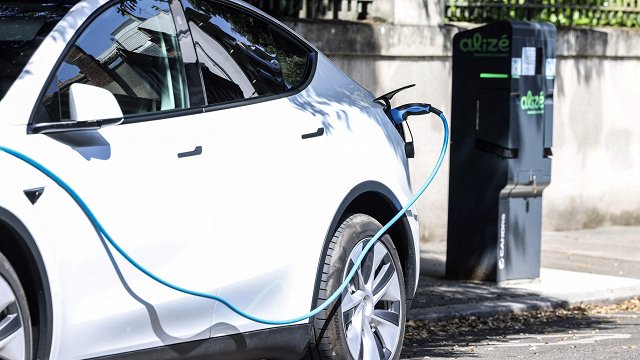Last year, including spring and autumn, State energy support measures were allocated at EUR 820 million, but more than a quarter remained unspent, said the Ministry of Finance. As state aid for district heating and natural gas automatically enters, it was easier to calculate the money needed, while the forecasts differed from reality regarding refunds where citizens had to enquire municipalities for the money spent on heating material.
In 2022, €54 million was reserved for these benefits, while a further €73 million was for 2023, but currently slightly above 14 million has been paid.
Economics Minister Ilze Indriksone (National Alliance) explains this with the warm beginning of winter: “We forecast maximum possible price increases, and in fact temperatures and winter we forecast it to be harsher. We've been spared by nature. In fact, the first half of the winter has been warmer than we had thought. So this savings is certainly not a foregone aid. I think that the aid instruments are sufficiently well prepared and implemented.
For the purchase of pellets, the government estimated EUR 10 million but paid a tenth of it. Only three percent or 67 thousand euros have been spent on the refunds for briquettes. 34 thousand was spent instead of 15 million reserved for electric heating.
The government had set aside €21 million to compensate for the purchase of firewood when presenting a check, but only 100 thousand were actually spent. In the meantime, the government booked €4.8 million for no-check one-off benefits, but nearly three times as many people as expected applied for it and thus €12.9 million was paid.
The shadow economy researcher Arnis Sauka pointed out that the results showed a significantly higher proportion of the shadow economy in the fuel market than the authorities thought: “Such real motivations for citizens to pay an additional tax on this [fuel], especially if gets remains more expensive, are not exactly there. Under no control, why should this phenomenon not be distributed? […] Apparently, the government has also been sufficiently naive in this respect, thinking that the proportion of the shadow economy, including with wood and pellets, is less than in reality."
Kristaps Klauss, executive director of the Latvian Forest Industry Federation, said that in the case of pellets, taxes were mainly paid on the market. According to him, people rarely turn to benefits because the pelletz are used by more wealthy people who do not necessarily need the aid. On the other hand, the shadow economy in the wood market is acknowledged by Klauss.
He said that without a check, the benefits should not be provided in the future: “There must be a clear signal that wood must also be legally purchased because we cannot support the grey market.”
The Ministry of Finance indicated that the government budget deficit will be reduced by the money saved in the aid measures. Asked whether it would not be possible to increase support for the population during this heating season, Ministry spokesman Aleksis Jarockis replied that the aid had already been relatively large and that it was borrowed money.
“The position of the Ministry of Finance is firm that sectoral ministries have to go far more closely to this policy, a much more analytical calculation and understanding of the needs of the population, more targeted support for those population groups most in need,” said Jarockis.
"In a number of countries of the European Union, it is simple, there is no splitting of the population by type of fuel, but by revenue, and absolutely no matter what they are using. They show their real income, and the spending section is compensated by a state-defined policy, and there will be no need to create new science,” said Aino Salmiņš, advisor of the Latvian Association of Local governments.
The government already asked the Welfare Ministry in the summer to develop algorithms for measuring both the income of the population and the number of people in the household. As a result, benefits could be paid automatically to those in need. The deadline for enforcement was October 1 last year. Now, however, the Ministry acknowledges that it cannot be done so quickly.
There are many problems, for example, different institutional databases and less easily interoperable. In other cases, automatically collected data would not be accurate enough to allow the benefit to be paid on the basis of them. Ministry of Welfare spokesman Egils Zariņš said: “There are cases where only a minor person is registered in an apartment or property. There have been cases where there is one address and 300 people have been registered. So you can't take it as a basis."
In the coming months, the Ministry of Welfare will draw up a report to the government with proposals to further develop heating aid. Then it will have to be decided whether it is worth introducing such automated benefits for households.





























